Goliath interview
Mancunian band Goliath—a name familiar I’m sure to many of our readers—was a female-fronted, jazzy, progressive outfit that left the world one very commendable record on CBS in 1970. To be filed next to your Catapillas, Affinitys and Rooms, the band featured the delightful Linda Rothwell on vocals—who really packed a punch despite her five foot one stature—with a Melody Maker article from the day affectionately christening her “Little Linda—rock slinger”.
The band forwent the customary Hammond organ favoured by many prog acts, instead choosing to flesh out their sound with top-rate flute and sax courtesy of Joseph Rosbotham (or Ros as he was known to the band). The rest of the line-up included Malcolm Grundy on guitar, John Williamson on bass and Eric Eastman on drums and percussion. The band opened for some of the big names back in the day including Led Zeppelin, Deep Purple and E.L.P. and were slated for big things, with a heavy promotion campaign in the works from CBS.
It’s with great pleasure, therefore, that I welcome “Little Linda”, Joseph Rosbotham and John Williamson to It’s Psychedelic Baby Magazine, who have kindly agreed to shed some light on the band.
Hello Linda, Ros and John! We’re so thrilled to have you on here! Thank you for taking the time to do this!
I’d like to start with the basics and ask you where you born, if your family was particularly musical and what memories you have of music growing up?
Linda: Hi. I was born in Bury, Lancashire, which is in the Greater Manchester area. I was the only one in my family who was musical, although both my mother and father liked to sing (or try to sing) along with a few opera singers every now and then. That’s probably the reason why I have a love for many operas to this day—yes opera!
At an early age I loved all the Sixties music: Diana Ross, etc.. Before that—the Rolling Stones. I remember having Brian Jones’ picture plastered on my walls as a teenager [laughs]!
Ros: My place of birth was near a village some 13 miles north of Liverpool—Rainford. My father was a small farmer and our farm was close to the local railway station. My grandmother had a piano—disastrously out of tune—which I explored on weekend visits. None of our family were musical, but my mother always used to have Radio Eireann (the Irish wireless station) on when I was a toddler. I must have absorbed a bit of Irish spirit somehow; her favourite singer was Josef Locke!
Apart from being put in the middle of the school choir concert at age 9 years—even though I had never learnt or heard the songs being sung because of a long bronchial illness in hospital—my first conscious interest in sounds began with Bill Haley & The Comets; Rudy Pompilli was tenor sax man. The sound of saxophone tickled my ears; I remember making a rough model of a saxophone out of wood and nails and learning where to put the fingers long before persuading my dad to buy me a real one. Violin and piano (Chopin and Bach) were also tried out, but sax was my first real love.
John: I was born in Lowton (the area of Manchester) and I moved to Nairobi; my father worked for the East African Railways and Harbours. My father played piano and my mother played cello, although I have no recollection of hearing her play cello; I probably picked something up from there.
To Linda: What were some of the first songs you learnt to sing as a child? I understand “How Much Is That Doggie In The Window” was one of them? When did you realise singing was what you wanted to do?
Linda: Wow! Where did you read about “Doggie In The Window”? This is a true story—my first audience outside a shop. I sang in the school choir, around the house and alongside singers on the TV. I always wanted to sing.
To Linda: You took part in your school choir; how did you find that and what age would you have been then? Did you do any other singing before joining bands?
Linda: I would have been around 11 years old. I also sang with a couple of singing groups around the Manchester area to the elderly in retirement homes.
To Ros and John: Could you adapt this question to your experiences learning your instruments?
Ros: I began to listen to Humphrey Lyttelton’s jazz programme play Glenn Miller, Count Basie, Duke Ellington,… Gerry Mulligan Quartet was a favourite. Jazz and blues were my areas of interest–any experimental sounds. I thought the Rolling Stones, The Who,… were just noise, tho’ later on the Beatles sounded more musical.
During my teenage years at grammar school we had a wee trio–clarinet, saxophone and piano, but no bass or drums–but we did not seem to get much support. No choir or school band at that time; all the other kids were listening to pop or classical, I guess…
John: My influences really started when I was playing recorder in my school band for a nativity play and I bumped into a guy called Richard Zebster. He was a guitarist and inspired me to learn to play the guitar; I was about 14/15, I think, when I started playing. Guitar was my first instrument. I used to dabble on piano at my auntie’s, trying to write things. I had an inkling to stick melodies together, so I was sort of doing that before the guitar, really. I was listening to things like Jimmy Smith “Walk On The Wild Side”, [those] sort of organ things. Elvis was drifting in and out. It was mainly American music, cultivating everything. I went to art school and then I listened to R ’n’ B and Sonny Boy Williamson, Muddy Waters, the blues side of things. Then I got really into soul music.
To Linda and John: Linda and Goliath bass player John Williamson were part of a band called Petrus Booncamp before forming Goliath. Were either of you in any other bands prior to being in Petrus Booncamp and if so, could you tell us as much as you remember about them?
Linda: I was in many different bands, the first of which was with 2 local boys, Ray and Moss Studham. We would practice at the back of a booking office after they closed. I must have been about 13 at the time. The next was named Linda And The Wildlife. I was around 16 at the time; I sang a lot at school concerts and somebody passed this information on to the Wildlife band. Then came the Lemon Line which had 4 singers. They were Brian McGladdery, Rick Dean, Precious Kingston and myself. We were managed by a man called John Knowles who gave me the nickname Bubbles, which I hated (I believe he’s handling some big names in England right now). In 1967, Lemon Line was signed to Decca Records and released one single—“For Your Precious Love”. After a year or so with the Lemon Line and a couple of tours of Germany, England and Ireland, John Knowles had bigger ideas for me and wanted me to hook up with 2 other female singers; you may have heard of them—Polly Brown and Louisa Jane White. We were at that time being co-managed by a man named Morris King; he was the manager of the Walker Brothers. Polly, Louisa and I were then named (don’t laugh) Bubbles, Bangles and Beads. I’ll try and send a picture later; I have one. We had quite a few backing bands from all over the country; we were one of the first girl bands, if you will. After we broke up, I took a short break. I read an ad in the newspaper for a female singer in Germany to sing for American troops. This is how I met Roy Robinson; it was his band. I can’t remember the other band members’ names; one was called Jimmy, another was Martin. When our bass player announced he was leaving, John Williamson came as our replacement. John and I became very good friends and would sing and play together till early in the morning. That’s when I first got into Nina Simone, Etta James and Aretha Franklin.
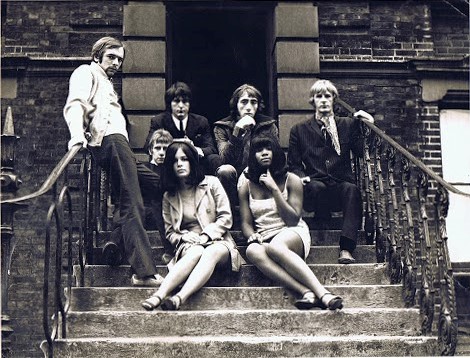
John: After having been in sort of a little rock ’n’ roll band which was called the Banshees—I must have been about 17— I joined a band from Leigh (near Manchester, UK) and that became the Night Train. It was a Booker T. & The M.G.’s sort of repertoire and soul music, basically.
To Linda and John: I understand Roy Robinson, later singer for the great Norwegian band Titanic, was also in Petrus Booncamp. Who else was in the band, when did you form and what sort of music did you play? Did you tour much around the UK? Please feel free to tell us anything else you remember about the band and your time in it!
Linda: On returning from Germany, John Williamson, Roy Robinson and I decided to form another band; it was a progressive band. We were writing all our own music. We did a couple of demos; one was called “Salt In My Wounds”. I can’t remember the names of the other members. We took it to another level and formed Goliath.
John: I went to Germany to the US bases and joined a band with Roy and Linda. We came back to the UK and me and Linda decided to form a band [with Roy] which became Petrus Booncamp. Then Roy left and joined a band called Titanic. We went on to become Goliath after various escapades in Europe and working at the Top Ten club in Hamburg [alongside Danish band Lost And Found]. In fact, me and Linda went back to Denmark with them after that escapade and spent a week or so in Denmark. Petrus Booncamp were dabbling with their own material; we started writing songs and did a demo in London—Tin Pan Alley sort of demo. I can’t remember what happened to it; I don’t think anybody’s got a copy. Then we became Goliath.
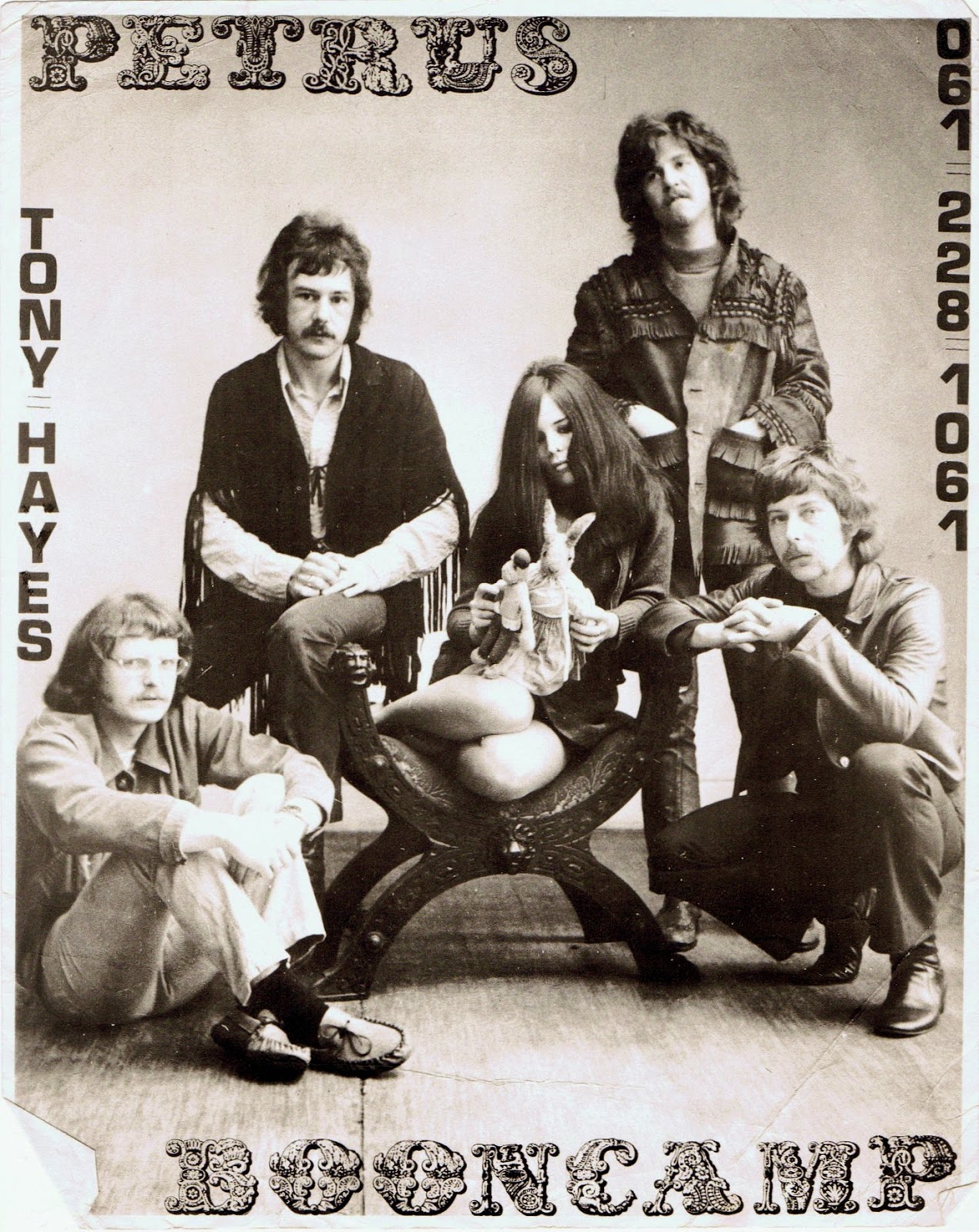
To Ros: What bands were you in prior to joining Goliath? Do please feel free to go into as much detail as possible.
Ros: My tenor sax lay forgotten under the bed for a long time after school days, until I rediscovered it while spring cleaning at age 24. “Oh! That were summat else I used to do one time—wonder what it sounds like now!”, methought. It still sounded good to me and I played tenor sax with a showband (Irish showbands were popular) for 18 months around the Northern Labour and night clubs. I decided there was not enough music in that for me. I then ended up in a holiday camp in Devon with Malcolm Grundy, who I had heard locally. We played foxtrots and waltzes, sometimes for holidaymakers in wheelchairs. The bandleader was alcoholic “Red” Price—now passed away—of “Hoots Mon” and Six-Five Special fame.
After that fiasco, Malc, Gerry Kenny and me played some weird gigs doing Malcolm’s post-Hendrix freakout sounds–including Bala village hall, in North Wales–where the kids seemed to dance in a big circle trance-like. I remember being fascinated by the sight of them, tho’ our group was out-of-their-minds stoned too.
Later Linda and John Willy asked Malcolm to join Petrus. They had a contract to play one month at the Top Ten club, Hamburg—I went too. We practised a bit at the farm but did not have much repertoire and struggled for a drummer. That was hard work—late nights till early morning. There were two bands alternating: us and a Danish band who were really big smokers. Both bands got sacked after two weeks. The club got empty because of the fantastic hot weather; the audience were out on the beach partying.
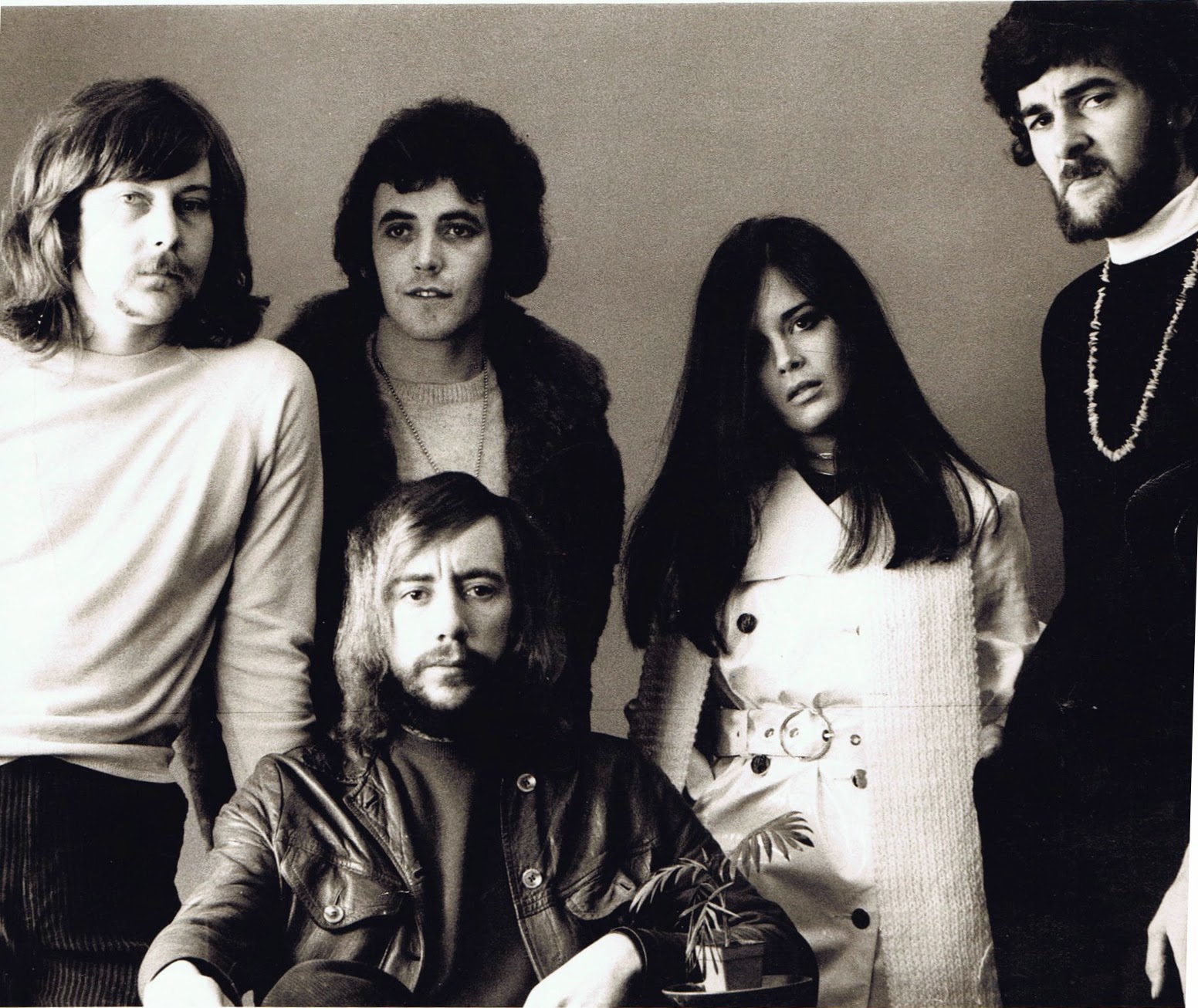
After Petrus Booncamp disbanded, Linda and John stayed together and joined forces with Malcolm and Eric—both formerly in a band called The Dominoes/the Beat Boys—and Joseph to form Goliath. I’ve read it took you a while to settle on Eric as the drummer, going through several before being happy. Could you go into as much detail as possible as to how the band ended up with its definitive line-up, mentioning, if you could, the names of any passing drummers?
Linda: We went through many drummers looking for Eric; I can’t remember most of them. The one in the picture was a stand-in named Pete?
Ros: Malc and me came back from Hamburg wondering where Linda and John Willy had got to; they were in Copenhagen, visiting Christiania commune. Eventually they returned, broke as always. We began to practise in earnest after that. Eric Eastman, I had seen on drums at Leigh Jazz club and thought, “Here is a REAL drummer.”. He had a job at an undertaker’s but did not like the job; he later gave it up when we started to get a few gigs as Goliath.
“After watching Jethro Tull we decided we wanted a flute”
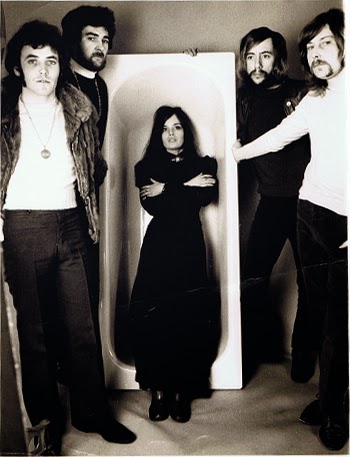
John: After watching Jethro Tull we decided we wanted a flute, so that’s how come we met Joseph Rosbotham, who was playing with a friend of mine called Gerry Kenny. Gerry Kenny used to be in the Lancashire Rats. Joseph joined the band and I went off guitar onto bass. Malcolm Grundy came in on guitar, we formed Goliath and then recorded the Goliath album. We had a drummer; again, myself and Linda can’t remember what his name was. His name was Pete; I can’t remember his last name. We had a drummer called Martin Roscoe [later of Nine Days Wonder] before that; that was in Petrus Booncamp. Then we got Eric. Eric was a jazz drummer and played vibraphones too. We got with Eric and used vibraphones in the stage set as well.
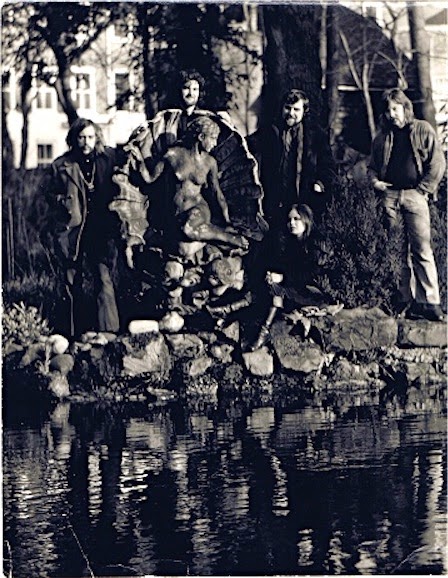
With the band formed, where did you rehearse and what memories do you have of some of those first practice sessions?
Linda: This question made me laugh. Ros lived on a farm with his parents. We literally practiced in the barn for the most part. John and I did a lot of practicing/jamming together individually. I was the one most focused on practicing.
Ros: The barn was full with tons of spuds (potatoes) by the time we were seriously rehearsing. We used what I called the Wash-house, stoked a big fire up, annoyed some neighbours half a mile away and had police call in. Trouble was Ros had to taxi Linda from Bury, so there was much driving around already for me. Somebody told me once that he didn’t think farmers had much time for music—that is true as farm work got neglected by me very quickly.
John: We rehearsed in Ros’ farm and barn in Rainford. It’s a bit of a blur really; I remember walking across to the pub every now and again.
Did it take long for some of the songs featured on the LP to take shape? Did you perform any songs not featured on your record?
Linda: It didn’t take that long; we worked together as a band pretty well. We were actually working on our second album when the band broke up; we were doing a lot of these songs onstage. The one that comes to mind was written by John and called “Seashore Sands”, which we performed live on BBC Radio.
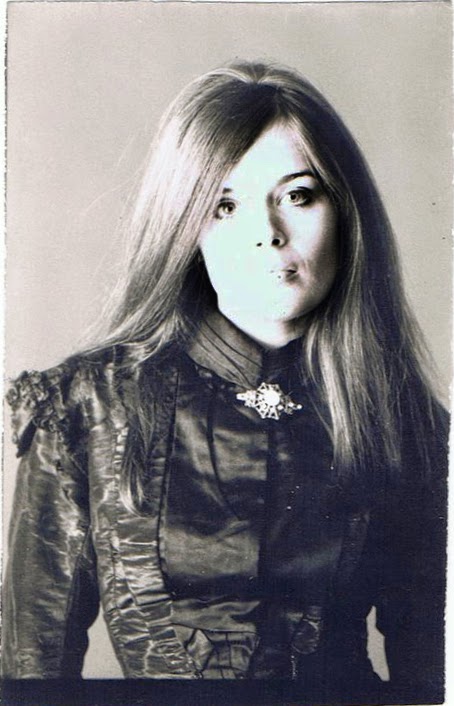
John: I can’t remember the process, really, other than the fact that some songs were quicker than others to formulate; some take a lot of honing in and some get thrown by the wayside. We had a whole catalogue of stuff for the second album—which never came to fruition—which we actually recorded on a BBC session. I wonder what happened to that; we’ve never been able to trace it. It’s just one of those things. I really can’t elaborate much more on that; it’s a bit lost in the midst of time!
The beginnings of Goliath saw you gigging in and around your native Manchester. Could you reminisce about some of those early concerts? If possible, could you tell our readers what gear each member of the band used on stage?
Linda: If you’re speaking of our clothing, I wore mostly antiques—long dresses and gowns—from the Victorian and Edwardian period, bought from antique clothing stores in Manchester. I also wore jeans tucked into boots and huge belts—that kind of thing. The rest of the guys: jeans.
“We got a truck and we started gigging up and down the country.”
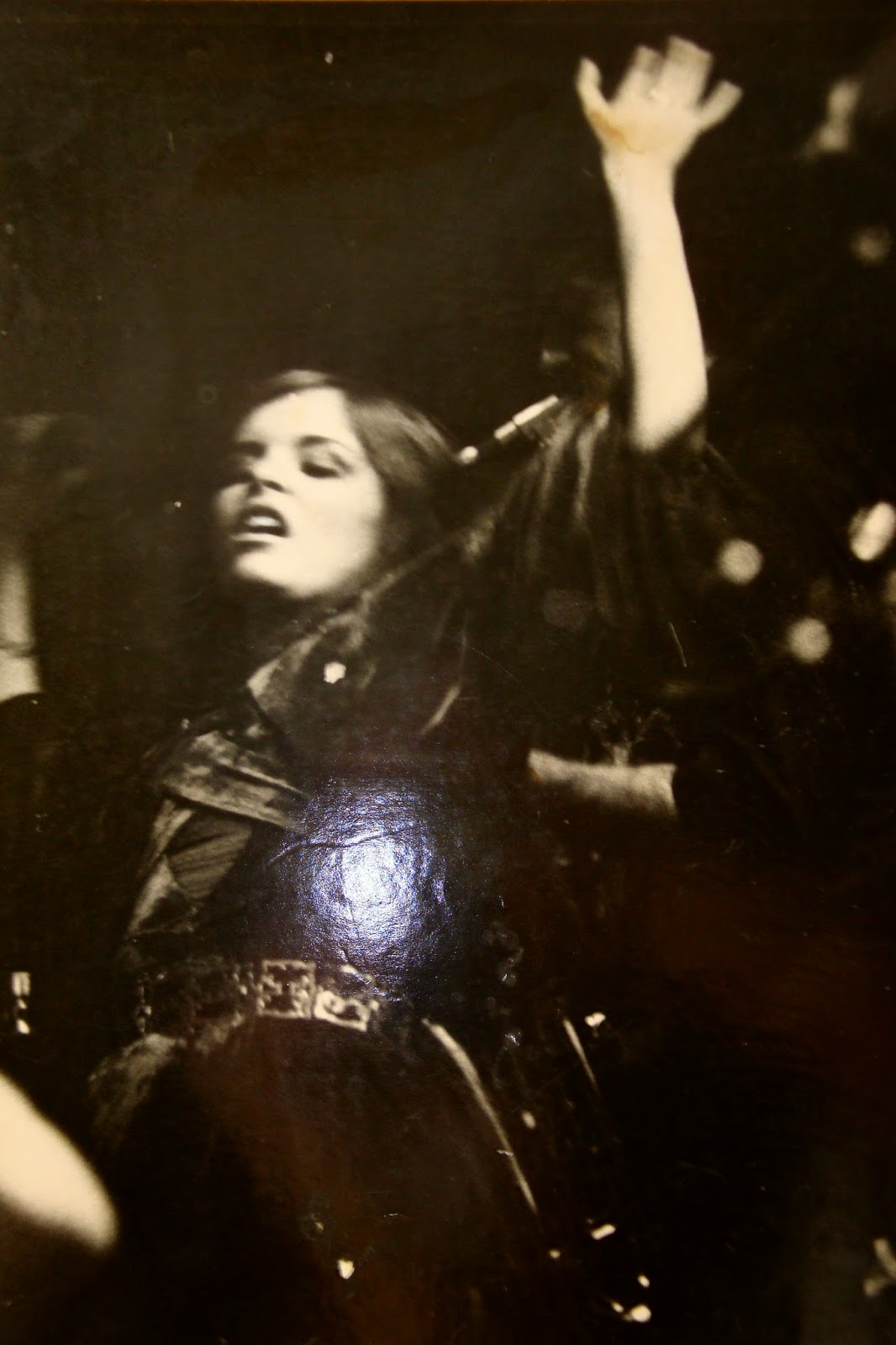
Ros: I never ever wore jeans! We carried a WEM Watkins PA with condenser mikes; Linda had her own favourite mike. Malcolm had a Telecaster with his own custom amp + speakers. The guitarists later used Marshall 100 Watt amps with 4 x 12” speakers. I can’t remember real detail now; equipment was undergoing many changes late Sixties—probably still is. Because I was the only person with cash, I had to buy equipment to get us going, and it was a learning period for me. John Willy will have a clearer picture of all that.
Eric, besides conventional drum kit, played excellent vibraphone onstage. I think the vibes would have been better left until a later time, however; just the logistics of transport and miking up made extra work too early.
I play a Selmer Mark VI tenor sax with a Lawton metal mouthpiece lay 9 and a Uebel aluminium-bodied one-piece flute of unusual design (a collector’s piece, I think now). I loved that flute—heavy but sturdy. Once, on reaching for it onstage, I knocked it across the room and it survived; an ordinary flute would have been wrecked beyond repair.
John: We got a truck and we started gigging up and down the country. As Petrus Booncamp, before we became Goliath, we supported Led Zeppelin on their second ever gig; that was at Manchester or Salford University—I can’t remember which. Then we supported Deep Purple and Canned Heat and various people like that. Oh! Before that—I mean way before that—with Night Train, we supported Cream. I’ll always remember that because the bass amp broke and we asked the roadie from Cream if we could use their bass amp. He said, “No”, but what we did was… The amp was a Marshall stack—it was behind us on stage— and we just plugged into it [laughs], much to their horror! They were giving us daggers from the side of the stage. Cat Stevens we supported there too.
I had a Sound City bass head, Sound City cab (4 x 12”) and an Epiphone Rivoli bass, I think.
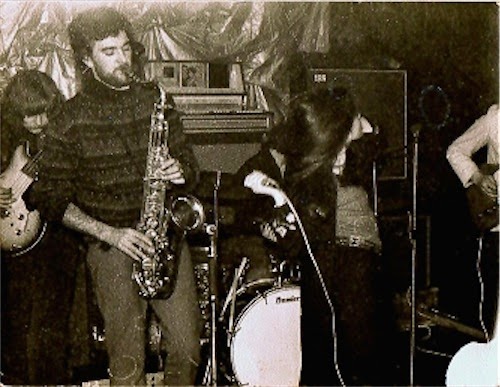
You were spotted at Leigh jazz club in Greater Manchester by Phil Sanderson, a representative of Family Tree Productions. He signed you on to CBS and ended up becoming your manager. Could you elaborate as much as possible? You mention on your Facebook fan page that a certain Tommy Sanderson was also involved in a managerial capacity. Could you tell us a few words about him too?
Linda: Tommy Sanderson managed Louisa Jane White. Phil was his son (who later married Louisa). If you remember, Louisa and I and Polly were in a girl group together and we kept in touch. She told Tommy about me and Goliath and what I was doing and he, along with his son, came up to Leigh jazz club to watch us live—they loved us. The rest became history.
Ros: Tommy Sanderson I remember as a very approachable guy, but Linda had more dealings with him than the rest of us. I think they envisioned us as a girl singer with a backing group more than we did. Although we thought the world of Linda, it was intended to be a group of equals—each had their own voice to discover and share.
John: It was kind of an intense situation where we were focused on what we were doing, I suppose, and the band was getting popular. I think then we just came in contact with Tommy Sanderson, who had something to do with Linda before we met her. We got the management situation deal and they put us with CBS.
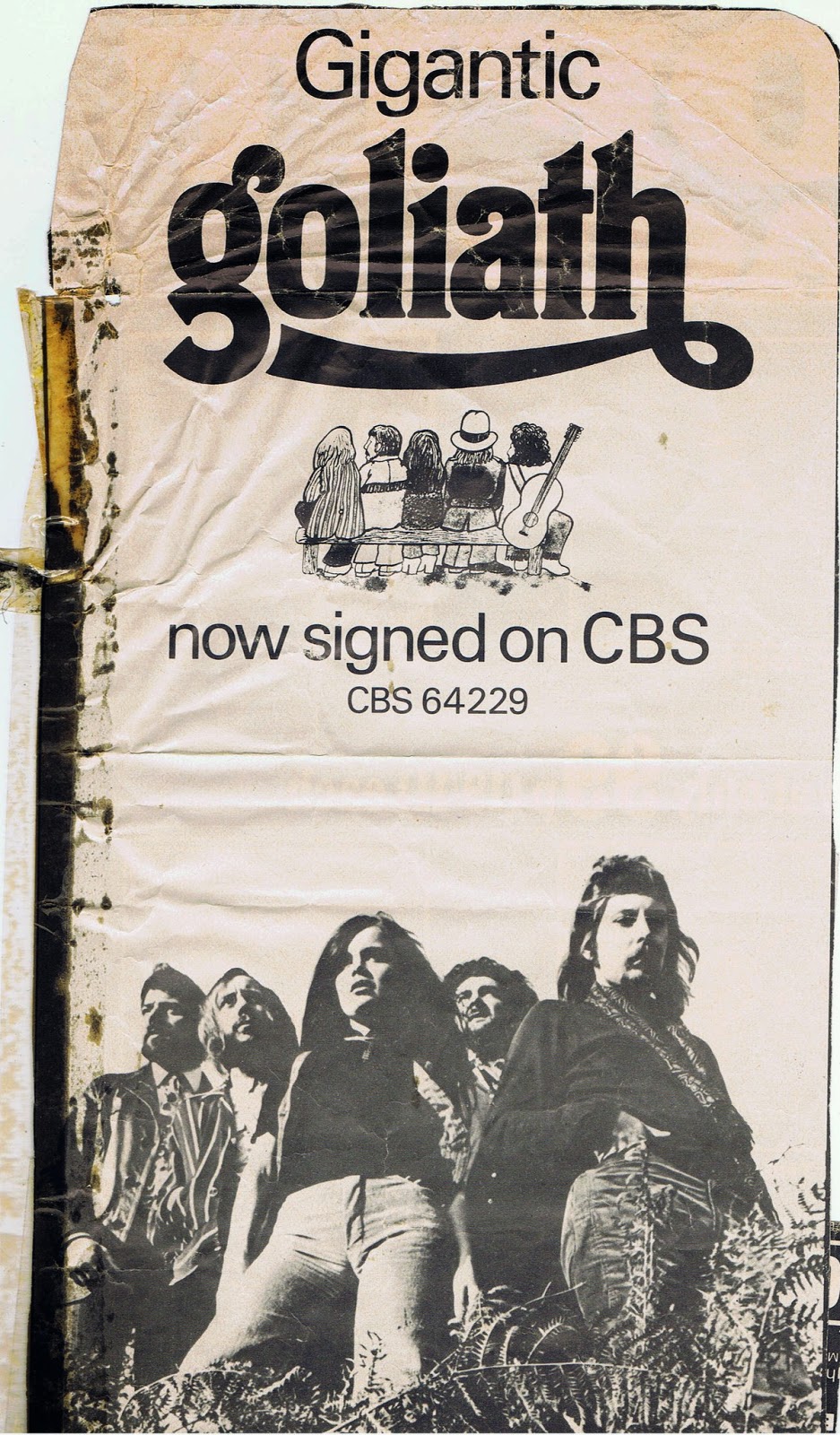
Where did you record the album and could you share any memories that stick out for you during that time in the studio? In particular, we’d love it if you could say a few words about each track off the LP—anything at all that comes to mind!
Linda: The album was recorded in London. I remember being quite stressed out at the time, trying to sleep but the songs going around and around in my head. The songs I loved singing on the album were “Men”, “No More Trash” and “Hunters song”. I remember “Prism” was extremely difficult to record as the timing of the song is quite difficult for a singer, if you listen closely. But, I loved singing it; the high notes—loved them. I would open a set with “Men” or “No More Trash” many times and often close the set with “Hunters Song”. In the middle of “Hunters Song”—where you hear everything being played but the kitchen sink (quite literally bottles, etc.)—I would sneak offstage, and at the end where I start singing softly I would appear from behind a speaker…“In some fields where rabbits run”….loved that song.
John: I can’t remember much about it to be perfectly honest, what with lots of green smoke lying around. It was those kind of days, so I don’t really remember too much about it, other than the fact that I know we weren’t happy with the overall sound. It didn’t quite hit the spot that we thought, even though we were all very proud of it when we’d finished. I think we were kind of intimidated by the studio in London, really. They weren’t really used to Jimi Hendrix sort of turning up, so guitar amps had to be quiet and the engineers were in white coats looking at dials.
“Port and Lemon Lady”—That was done with Linda, really (if I remember rightly).
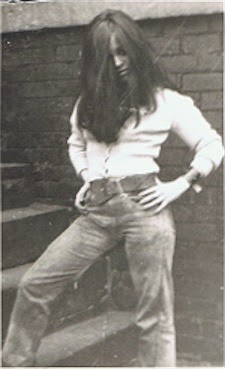
“Hunters Song” is my favourite from the record.
“Hunters Song”—That was one of my favourites too. That was a big number live; we were jamming quite a lot on that one. It was kind of a hit and miss situation, you know; we didn’t know where we’d end up. We’d seen a lot of American jazz players: Pharoah Sanders, various people… We had a sound tree, which was like some effects on a stand. I think it was Eric’s wife who got it from Co-Op where she used to work. It was some sort of postcard stand that revolved; we used to hang alarm clocks and chains and whistle things on it and Eric would sort of improvise (in the free moments) using these sounds. We were quite into the avant garde at the time, taking things a bit further. When I listen back to it, I sometimes think, “Where the Hell were we actually at!?”—it was different.
“Maajun (A Taste Of Tangier)”—It’s written by David Graham; he’s a very famous guitar player. The album we listened to of his was called Folk, Blues and Beyond…—it’s a great album. He was an acoustic 12-string player who played some amazing things. Malcolm introduced us, I think, to “A Taste Of Tangier”, which he and Ros used to play together in an incarnation of the Rats (with Gerry Kenny). We [Goliath] sort of arranged it ourselves differently, and that was that.
It’s so long ago, I don’t know how the process came about. Most of the songs were done from an acoustic guitar point of view, you know, and just kicking the idea around. I’d either finish it myself or do it with, say, Linda or whatever and then take it into the band and see what happened, basically.
Ros: A reel-to-reel ¼” tape was made by ourselves of all the numbers, maybe five months before any studio in London. Both Malcolm and I thought this tape had more life than the LP—freer and more relaxed. Malcolm had the tape, but has forgotten what happened to it.
John: We did an acetate, yes. I think we captured more of the vibe of the band.
Were there any tracks that didn’t make it onto the LP and that you wish had made it on?
Linda: I wished “Seashore Sands” had made it on that album.
John: That was particularly a favourite song of mine, really [speaking of “Seashore Sands”]. Me and Linda had spoken a year or so ago about redoing it, but I’ve not had the time to get round to doing it. There was quite a lot of stuff in the stewing pot for the second album.
Ros: Some of my inventions! Malc, John and Linda took on the writing mostly.
Did you have any input with regards to the album cover artwork?
Linda: We designed a cover which we all liked but CBS had their own ideas. We didn’t particularly like the cigarette butt idea but we liked the picture on the back; it was taken in an area of Manchester called Moss Side. The gun belt on the picture had live rounds and, on a break from taking the pictures, I remember the photographers screaming at me to get away from the fire in the pub where we were taking a break.
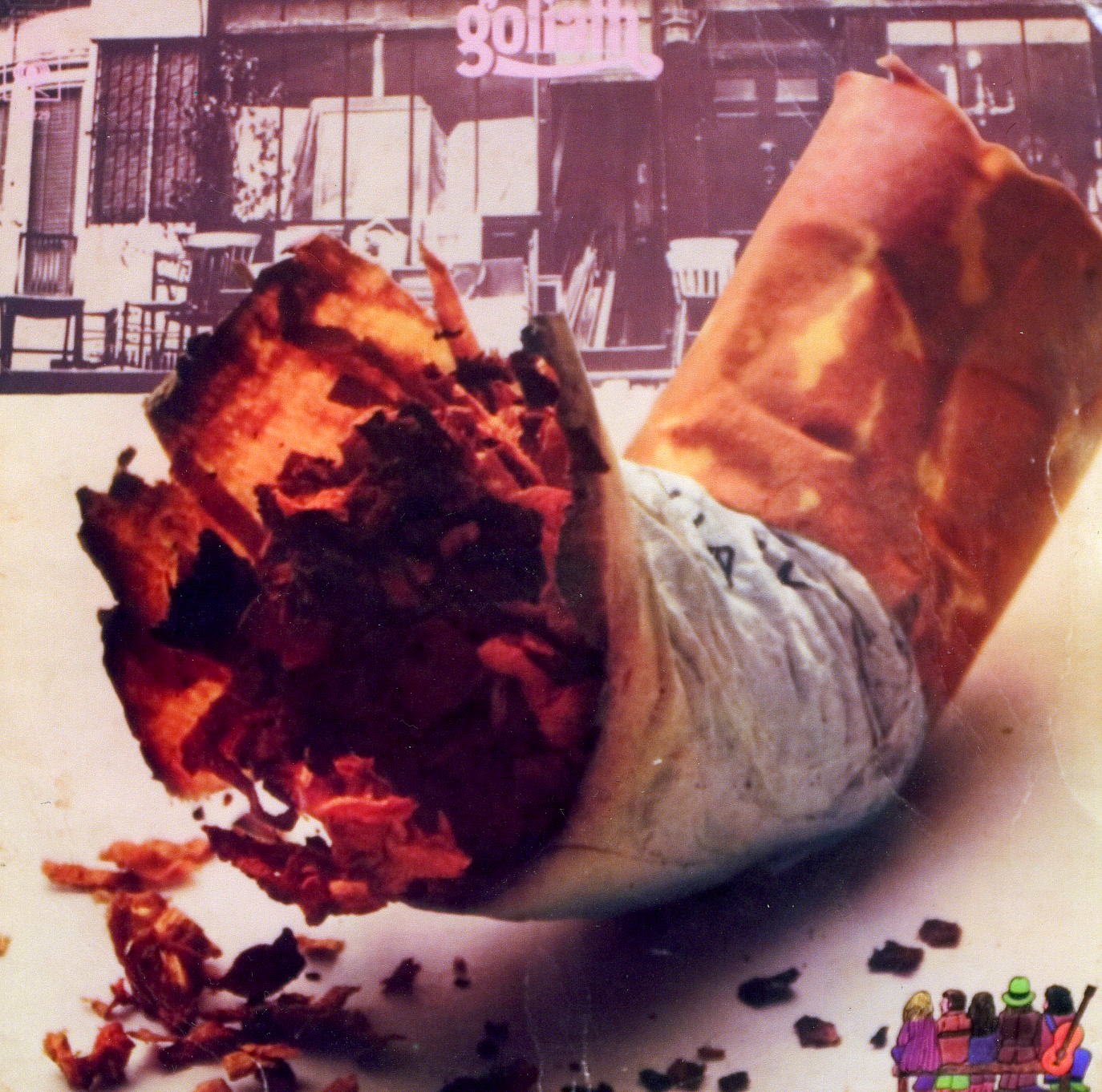
Ros: Yep [in response to Linda’s comments]. That cover was an advert for ASH—anti-smoking early on. There were definitely not any 12-bore cartridges in the cartridge belt! It was mine; I used to shoot wood pigeons and rabbits on the family farm for a short number of years. I was very interested in wildlife and ecology, as most farmers are.
John: I think it was done by CBS. They sent a guy down from London; I remember meeting him in Midland Hotel, in Manchester. He had this idea we would be this…I don’t know…from this insignificant cigarette butt, it would be enormous against everything else, you know. Looking back at it, it was probably a good concept, but I don’t think we liked it at the time. We had the pictures taken on the back of the sleeve in Moss Side, I think.
“We sounded a LOT fuller on stage than the album reflects”
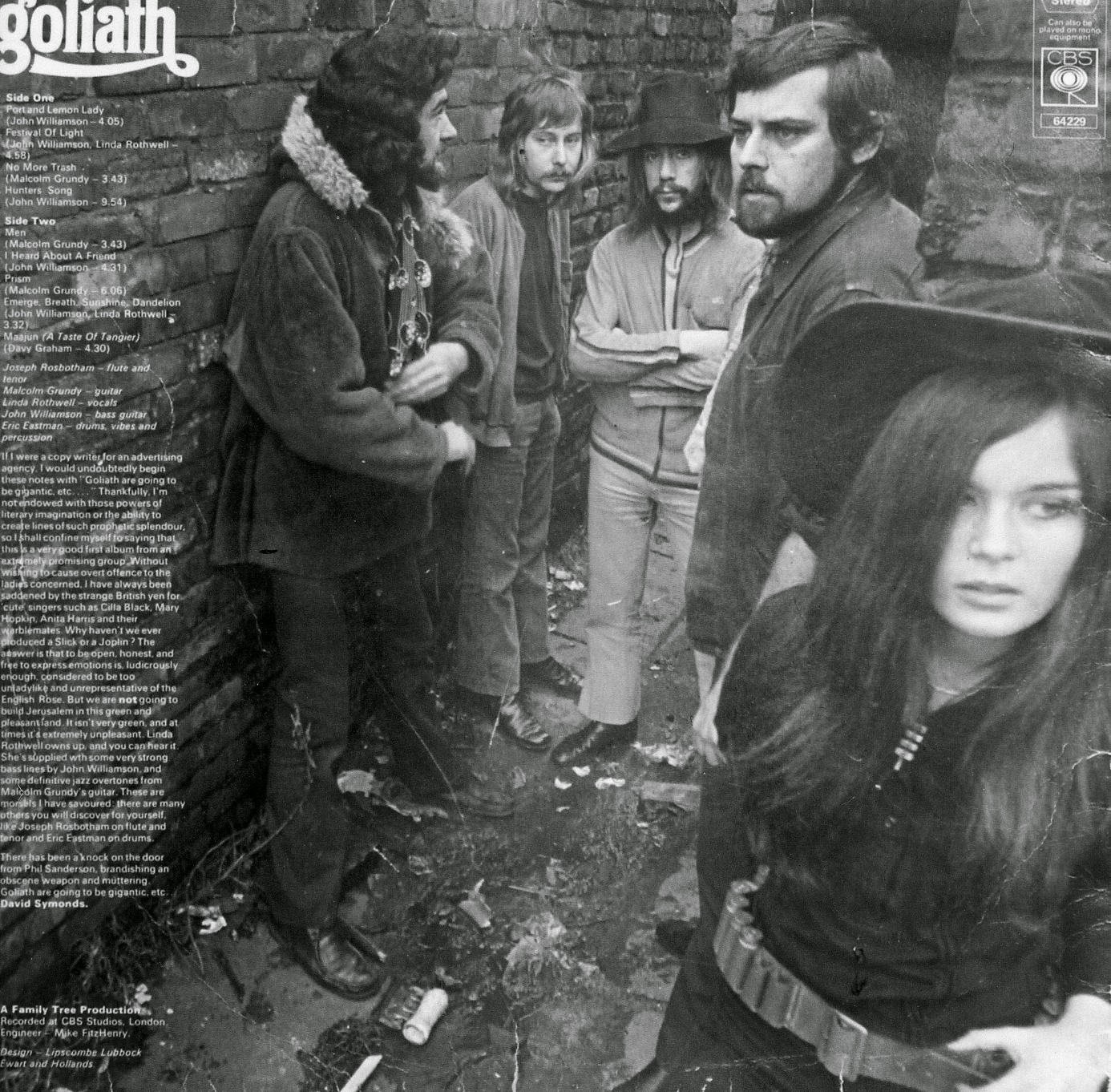
Were you pleased with the finished product and did it reflect the kind of sound you created live?
Linda: We sounded a LOT fuller on stage than the album reflects and, of course, many of the songs went on for a considerable length more time, as you can imagine. We would go to a club and Malc would start playing a riff from “Satisfaction” and suddenly we were all doing a few bars of that, just jamming away—good times!
Ros: Yes, we were quite disappointed with the sound on record. It did not give a true impression of our live sound. Malcolm especially was dismayed with having to play at low volume in the studio. Also, we only used four short days to get the band on tape, so it was a little rushed. And too much compression was used.
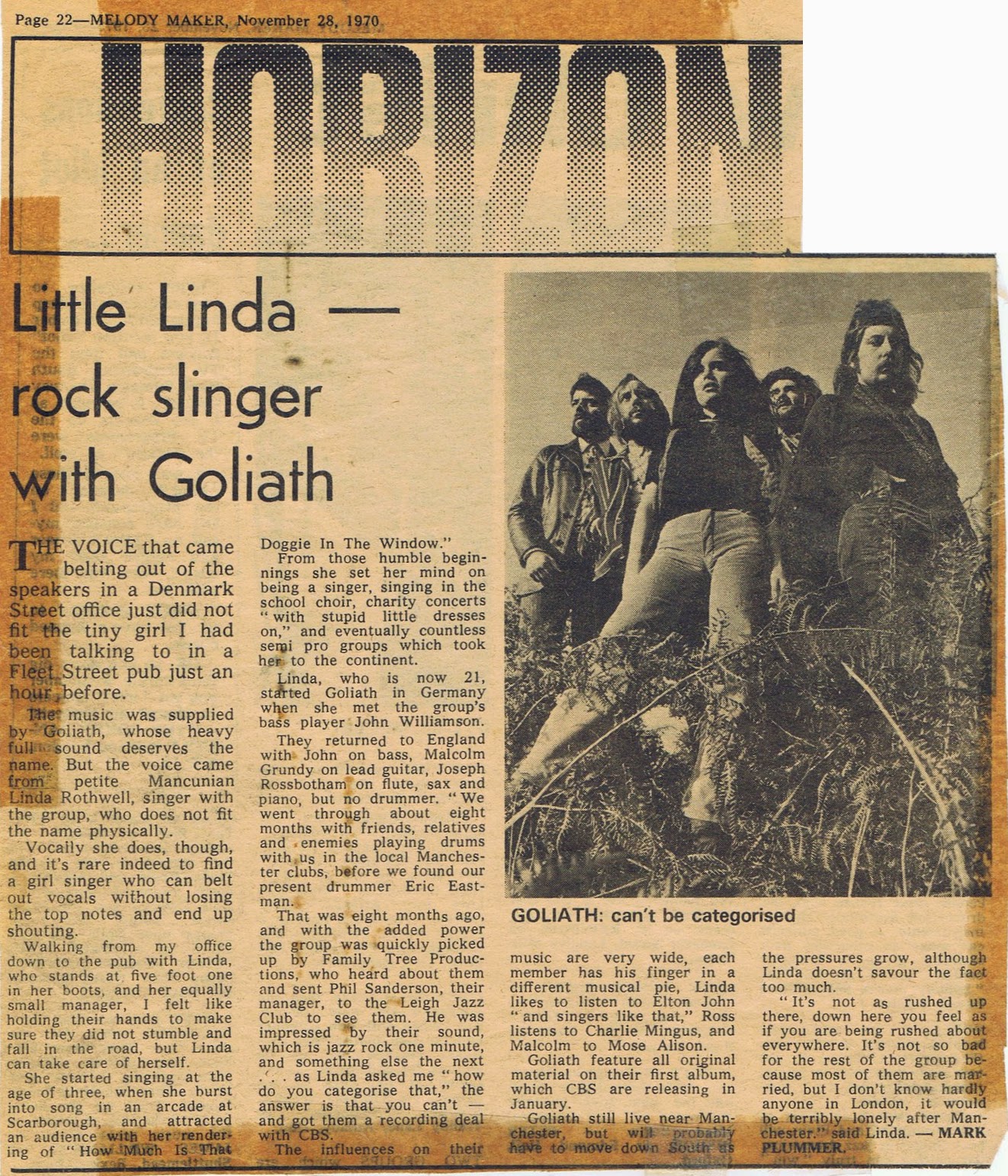
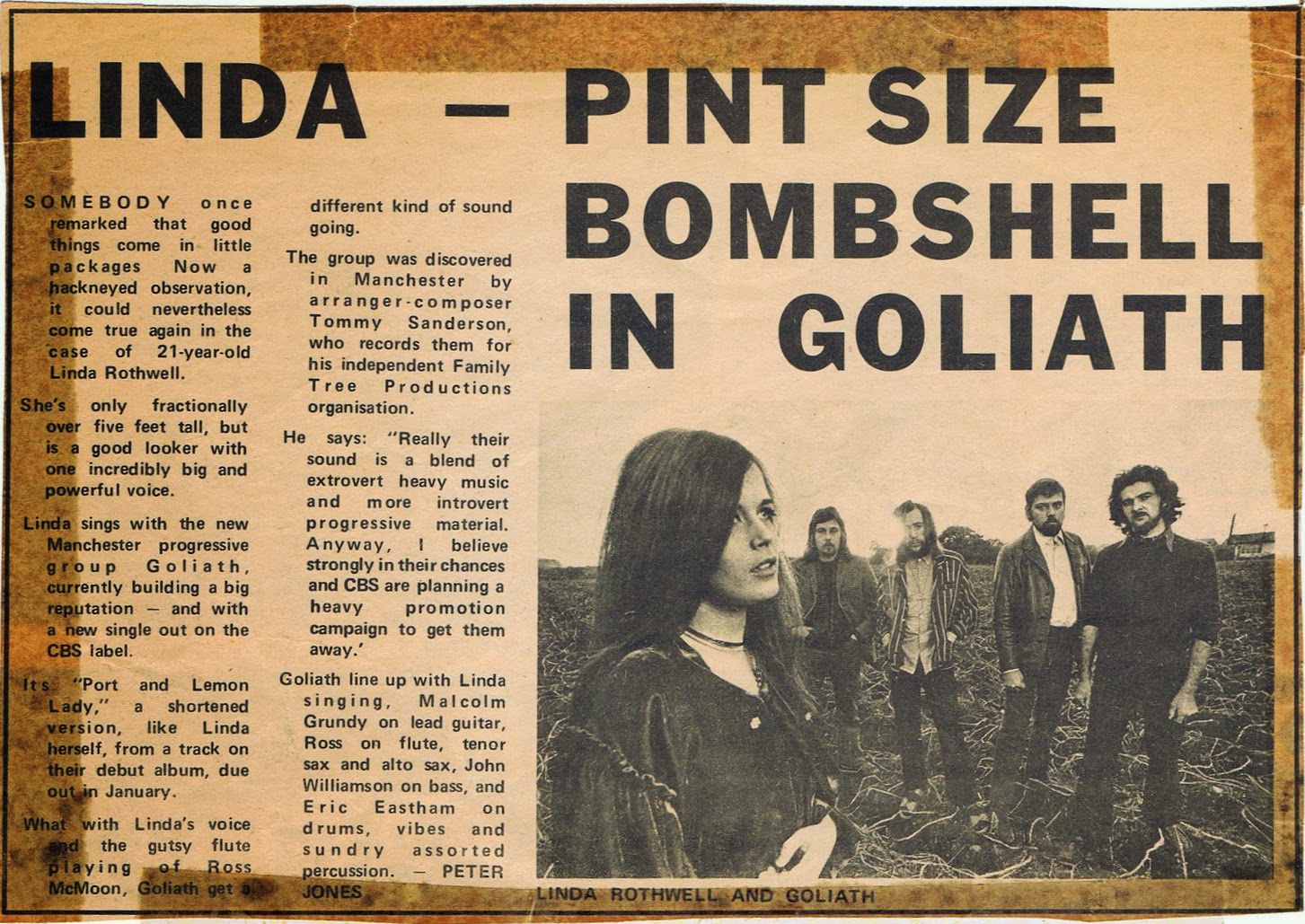
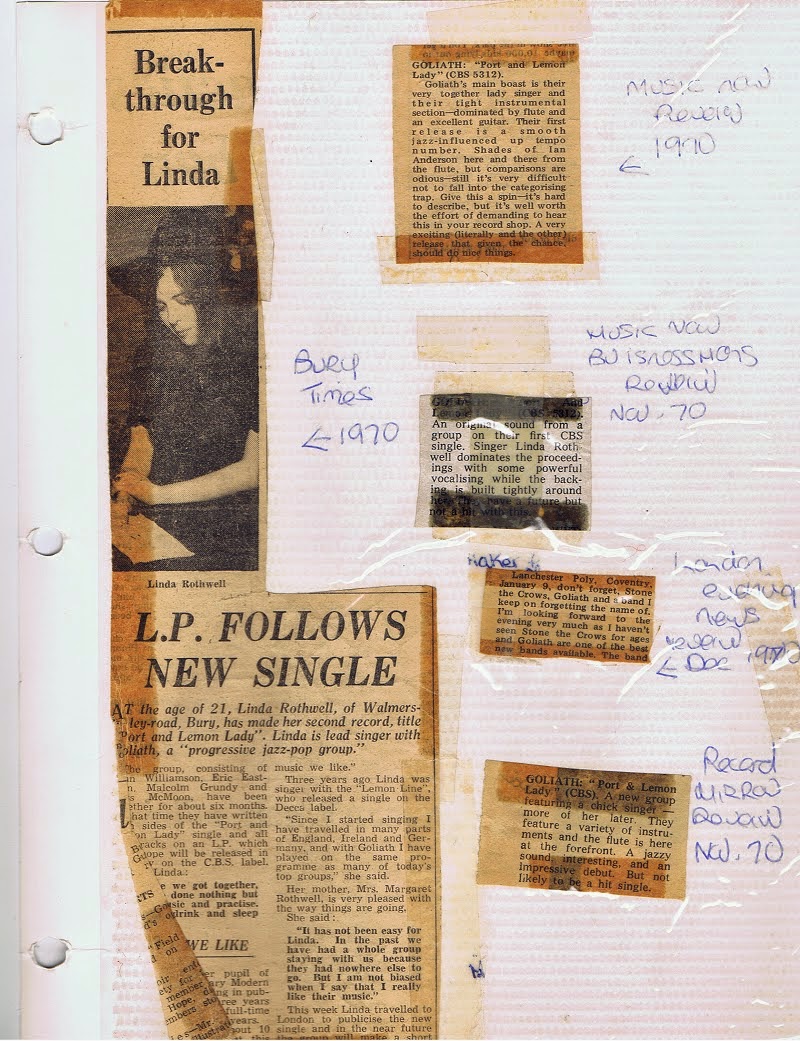
To Linda: You mention that the band broke up shortly after the record was released, citing, as one of the reasons, a breakdown you suffered brought on by exhaustion.
To Linda, Ros and John: Could you reflect and enlarge on those final few months leading up to the end of Goliath?
Linda: I had a very physically abusive father—maybe one of the reasons I liked being on the road a lot. When I came home, though, he was always there. Need I say more? I was overwhelmed with everything (not realizing my father was the main contributor at the time) but I went to the doc, told him how I felt and admitted myself into hospital. After I came out, I moved into an apartment by myself and started singing at Tiffanys, a night club in Manchester. I was kind of taking it easy, while remaining in contact with Tommy and Phil Sanderson.
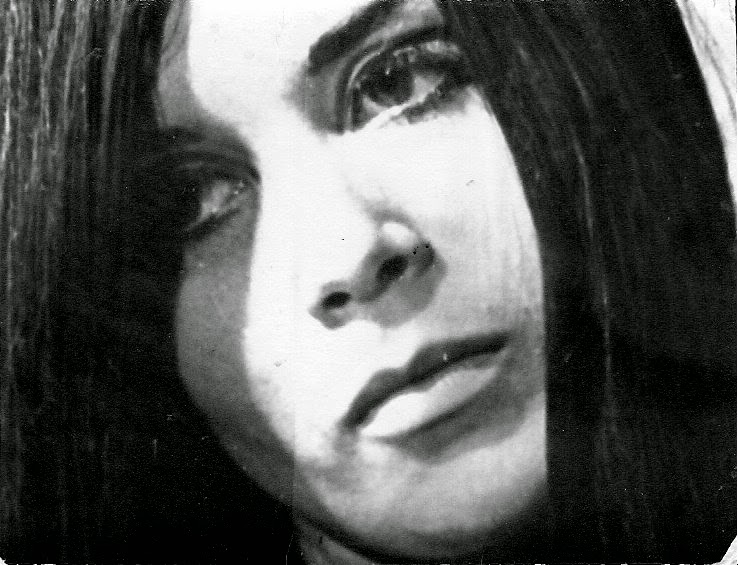
Ros: I could say much. Driving back from one of our odysseys to London, the band van seized up, leaving us stranded on the motorway at Watford Gap. Luckily, being band treasurer, I had enough cash with me to get us back home safe. I picked the equipment up the next day; luckily nothing was stolen. Always risky on der road!
John: Basically, I think Malcolm did as well [have a nervous breakdown]. It just fell apart; we couldn’t keep it together. All sorts of things were going on. That was it, really.
To Linda: You later released two singles, one in 1972 and another in 1973, on the Chapter One label. They are respectively “Dip-Dip-Dip-Chu-Chi-Face” (B-side “Sweet And Sour”) and “Write Me A Letter” (B-side “Tell Me”). How did these come about?
Linda: “Dip dip dip” [laughs]. That was a song written for someone else. I was supposed to be doing some session singing on it, and the next thing I know I am the lead singer on it—sounded like a kids song to me.
“Write Me A Letter”—still love that song. I started to write that on a road trip to London with Tommy’s wife, who co-penned it with me. The song was about the man who I met after I came out of hospital and later married—he was American.
To Linda: In 1973, you left for the States. Could you fill us in on what you’ve been up to since then up until the present day? You’re currently singing in a band—please do tell us more!
Linda: Well, I married the person who I just told you about and had a son. I got divorced and gave up on singing for a while as I was trying to raise a son. On and off, I would get up and jam—open mike, that type of thing. I became very interested in “health and fitness” and started my own personal fitness business in ‘83. I did quite well with that; I was even voted best trainer in Richmond in Richmond Magazine. Many of my friends—knowing I was a singer and knowing about my past life—would get me up on stage now and again, but it’s not been until the past few years that I have really gotten back into it. I have met a band now (we haven’t named it yet), but we are practicing quite a lot so I am keeping my fingers crossed. So many musicians have good intentions but when It comes to practicing, they fall apart. Great bands don’t become great without lots of practice. I have met quite a few musicians lately who just don’t want to put the time in, and I can’t stand this unprofessional bullshit.
To Ros and John: What did you do after Goliath disbanded? Could you fill us in on what you’ve been doing since then?
Ros: [In response to Linda’s comments] Practice, yes, but folks have plenty of other things to take care of in life…
I was quite flat for a while after (took to my bed, even), but eventually pulled myself out of self-pity and took a trip to Scotland. A Sami friend who had brought some reindeer to the Cairngorms invited me to help look after herding them. So, I walked about in the mountains for one year. I loved the freedom of that but didn’t want to play Santa Klaus over Yuletide, so I went back working on the farm. Eventually, however, sax took hold of me again—I tried a different approach.
John: I came back to my roots, really. I joined a band from Leigh called King Kyde’s Star World for a while, which had a bit of a brass section and was kind of a soul, pop band. Then I met a young lady who went to live in London; I was kind of besotted with her, so I left to go to London to seek my fortune. I met up with the old drummer and guitar player from the Night Train, who were living at Philbeach Gardens, off Earls Court Road. I took a flat there with some other guys (bedsit) and started playing in London. I did various auditions, and one day I saw an advert for a band called Titanic. Roy from Petrus Booncamp was a member; I joined his band. They were a Norwegian band and were originally called The Beatniks; they were quite big in Norway. They changed their name to Titanic. They had a #1 with a track called “Sultana” and they were looking for a bass player. I was kind of back on guitar, really, but I went for the audition, met up with Roy, and I think I was only shortlisted; they got somebody called Eric Siegmann from the USA, who didn’t last more than a couple of weeks, I think. In the meantime, I got a job in the south of France working in a studio called Seed, in Vallauris. I met up with a guy called Andrew Poulton, who later became a drummer with Titanic. Andrew Poulton was from a band called Chapter Six, I think (with members of Procol Harum, if I’m not mistaken). We kind of formed a band in this studio—the house band—with Peter Walters on bass and some other people (whose names I can’t remember) and we basically played background music for 8-track cassettes. Titanic came to play in Vallauris, near Antibes, and they offered me the job on bass. I moved to Paris with Titanic.
Weren’t you in a band called Skeleton Crew?
Oh, yeah, that was later. After various adventures with Titanic, Titanic broke up—excuse the pun—and I came back to the UK. I was playing various country/western outfits at the time, then I got a job in Ibiza with a band called The Winterband—this is the early ‘80s (1980/1981). I started writing with a guy called Brian Marston. I was there for quite a few years in Ibiza, doing different seasons; I worked at Sgt. Pepper’s night club in San Antonio. I came back to the UK and then formed my own band, which was the John Willy Band—everybody calls me John Willy—and that became Skeleton Crew. I was just walking past the bookshop one day and I saw the Stephen King book Skeleton Crew and I thought, “Oh! That’s a good name for a band!”, because we were a bit of a skeleton crew. That’s how that started, really. There’s quite a few recordings of Skeleton Crew, some YouTube stuff,… Skeleton Crew kind of dissolved in about 1999, and I think we got a little bit of success in the charts in France with a track called “Glory Hunter”, which was written by myself and Roy from Titanic. The band broke up and I joined The Animals & Friends, which was John Steel from the original Animals and David Rowberry, the keyboard player who replaced Alan Price. I stayed with them for about 10 years. In that time, Dave Rowberry died (in about 2004) unfortunately, and was replaced by Micky Gallagher from The Blockheads—an English band. He still plays with The Blockheads and he was in the original Animals briefly in the ’60s when Alan Price left; I think he was with them for a few months, so he has a claim to fame as being in the original Animals. So, I was with that band—The Animals—and toured all over Europe quite hectically for 10 years. We recorded an album called Animal Instinct, and then I left The Animals. I was working with a gentleman called Mike Bowden, a songwriting partner of mine. We’d been writing songs for a while and we got one of them on the Animals album. We decided that we liked what we were doing, so we formed a little acoustic duo. We were doing a few festivals, little gigs (as well as The Animals), and then I decided that The Animals kind of became more like a bit of a theme park; they wanted the songs sort of ‘as they were’, not like developing or anything. Artistically, for me, it was kind of a clash, so we parted company and I formed a band with Michael—the Blues Swamp Band (or Blues Swamp). We made an album as Bowden And Williamson called Urban Prairie Tales, which is available from…me [laughs]. I still have several thousand propping up the bed! [See link below] We recorded a live album as Blues Swamp—sort of a live EP—on a support tour we did with Nazareth a couple of years ago. We also did another Bowden And Williamson album called Right Band, Wrong Planet, which again you can get from the Blues Swamp website. We’re just about to get together and put another album together soon—we’re working on songs. For the last two years, I’ve been managing a band called Jeramiah Ferrari, who are a reggae/rock band from Manchester. They’ve just done an album which they’re putting out this week [speaking on 10/7/2014], so that’s what I’m doing: managing a band and managing my own band!
“It is quite an adventure, an exploration of emotion, being in a music outfit”
Looking back over the years, we’d love to hear your thoughts on Goliath and what it meant to you then and now.
Linda: I always thought Goliath was way ahead of its time; I’ve come to learn that more so now. There were a lot of great musicians. We were definitely hard to categorize at the time, yet the bands that we opened for (Led Zeppelin, Pink Floyd, Moody Blues, Deep Purple, to name a few) spoke volumes for what we were achieving. It was a great time in my life. I took my singing very seriously. I used my voice as a musical instrument, which you can hear on some of the tracks but more so in live performance. I was very theatrical on stage; I moved around a lot with a lot of emotion.
Ros: Groups got too big, very quickly. We tried real hard but only lasted a short time together. It is quite an adventure, an exploration of emotion, being in a music outfit—one needs much energy to do this thing.
John: Well, it’s ironic really, because I see in this young band that I’m managing kind of a similarity: the enthusiasm that we had. In Goliath we were totally focused on what we wanted to do—nothing else mattered. When we got the deal, it wasn’t exactly the deal we wanted, but we got a deal. We got signed to CBS, we got a lot of acclaim for it, and I see a similarity with this young band that I’m managing with their enthusiasm and their dedication. This fixed goal that they have in mind kind of reminded me of what it was like for me in Goliath. I still draw inspiration from that period and sometimes wonder where it’s all gone, you know [laughs]. It’s kind of like that feeling of, “Right, this is it! We’re going to do something.”. That’s kind of an inspiration to me when I look for enthusiasm.
Can we expect a Goliath reunion concert sometime in the near future, given you’re in direct contact with most of your former bandmates? Have you talked about it amongst yourselves?
Linda: I’m really in contact only with John, who I’ve Skyped a couple of times. Malc has written to me via Facebook, and Ros lately too. John is busy with the former Animals and doing his own acoustic thing, as you can see on Goliath on Facebook. Malc is in Snooty Fox, Babbacombe, Torquay. I’m in the States. A reunion is a nice thought but geographically probably impossible.
Ros: It’s so long ago. We are the same but different. We have our own preoccupations.
John: I don’t think so, no. I’m not really in contact with Malcolm. I bumped into Eric Eastman about 5 years ago in the street. I might do something with Linda; we might write something or record something—that would be nice. I’m thinking about that.
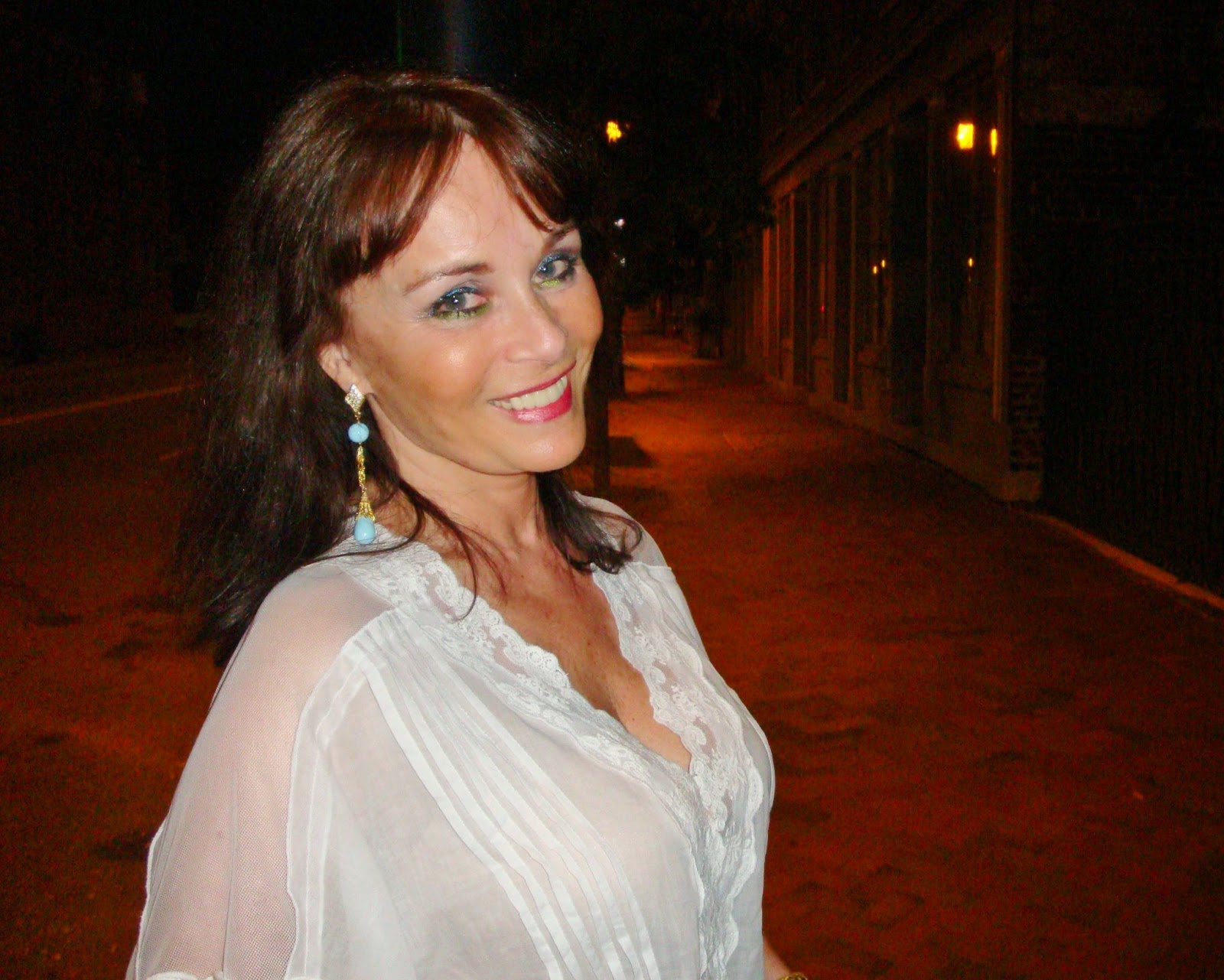
As is customary here at It’s Psychedelic Baby Magazine, we like to leave the last word to our interviewees. Here’s your chance to say whatever you want to all our readers and in particular the Goliath fans old and new reading this! We can’t thank you enough for being so generous with your time in granting us this interview with you all!
Linda: This interview has brought back a lot of memories. I’ve looked through old pictures of me, Roy Robinson, John Williamson, Polly Brown, Louisa Jane White, Goliath as a band and many other bands in between. Boy were we all young, haha! If I get a chance to Skype with John and sing “Seashore Sands”—which we have both spoke of doing (but he is trying to revise it)—maybe I will share it if technology will allow. It’s pretty wild to think of Goliath as a rare collectible bringing in hundreds of dollars for the album in good shape—especially this many years after the fact—which supports the idea that I said we were ahead of our time.
Ros: I listen often to Late Junction on BBC Radio 3 these days; I recommend the ear-bending experience.
John: Thank you for still appreciating something that meant a lot to us from that period of time, and I hope you get enjoyment from our music. I hope you’ll listen to some of the new stuff I’m putting out now [laughs].
– Sébastien Métens
[Sources: Melody Maker, November 28, 1970, page 22; article written by Mark Plummer.]
Interesting Links
Goliath’s Facebook fanpage run by the band members
Blues Swamp
Jeramiah Ferrari
Great website covering the Night Train, one of John Williamson’s bands before Goliath
and another covering some of his post-Goliath bands
Some background reading on Malcolm and Eric’s earlier bands:
here and here

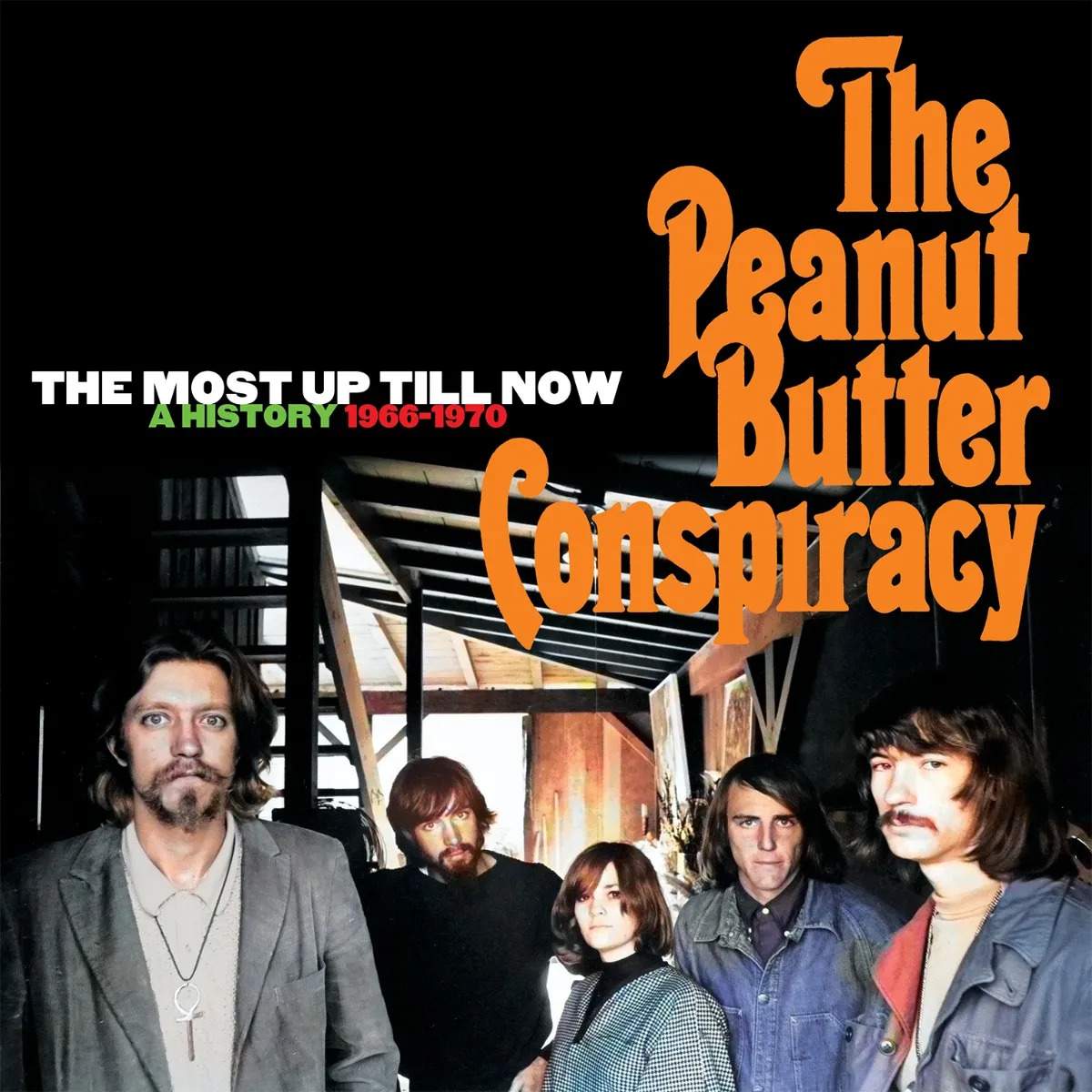
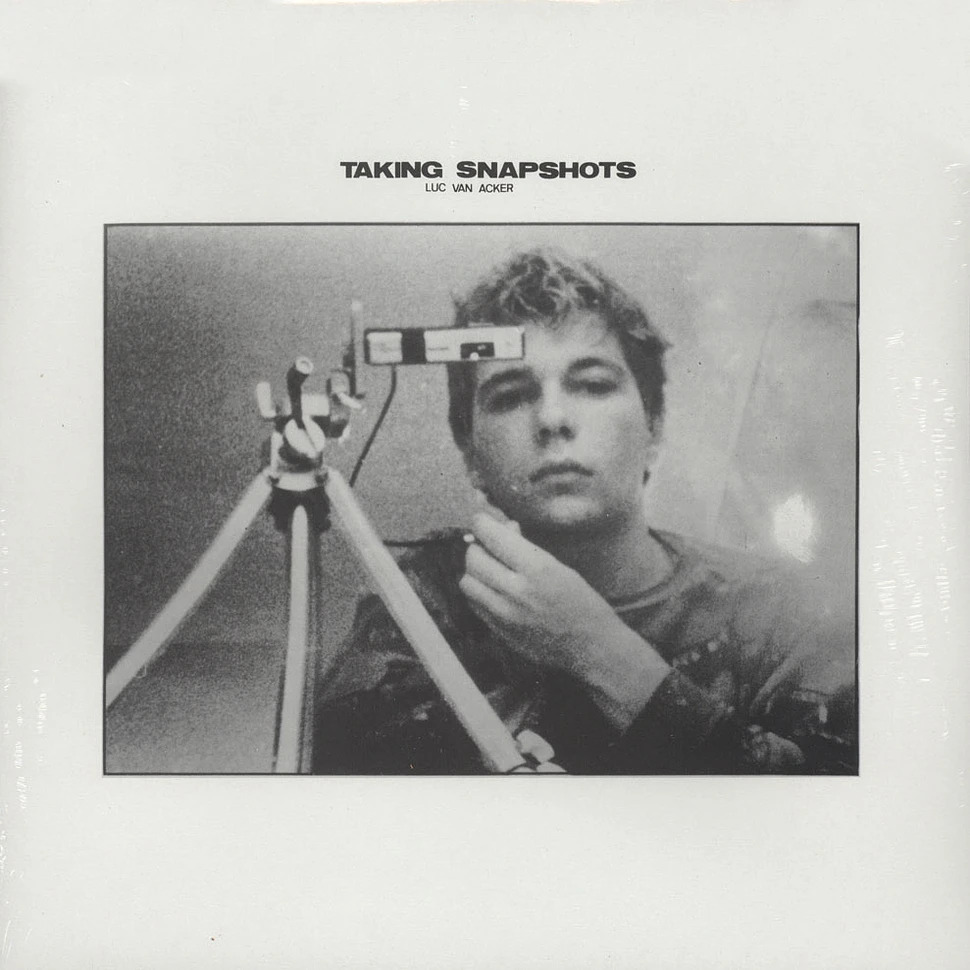
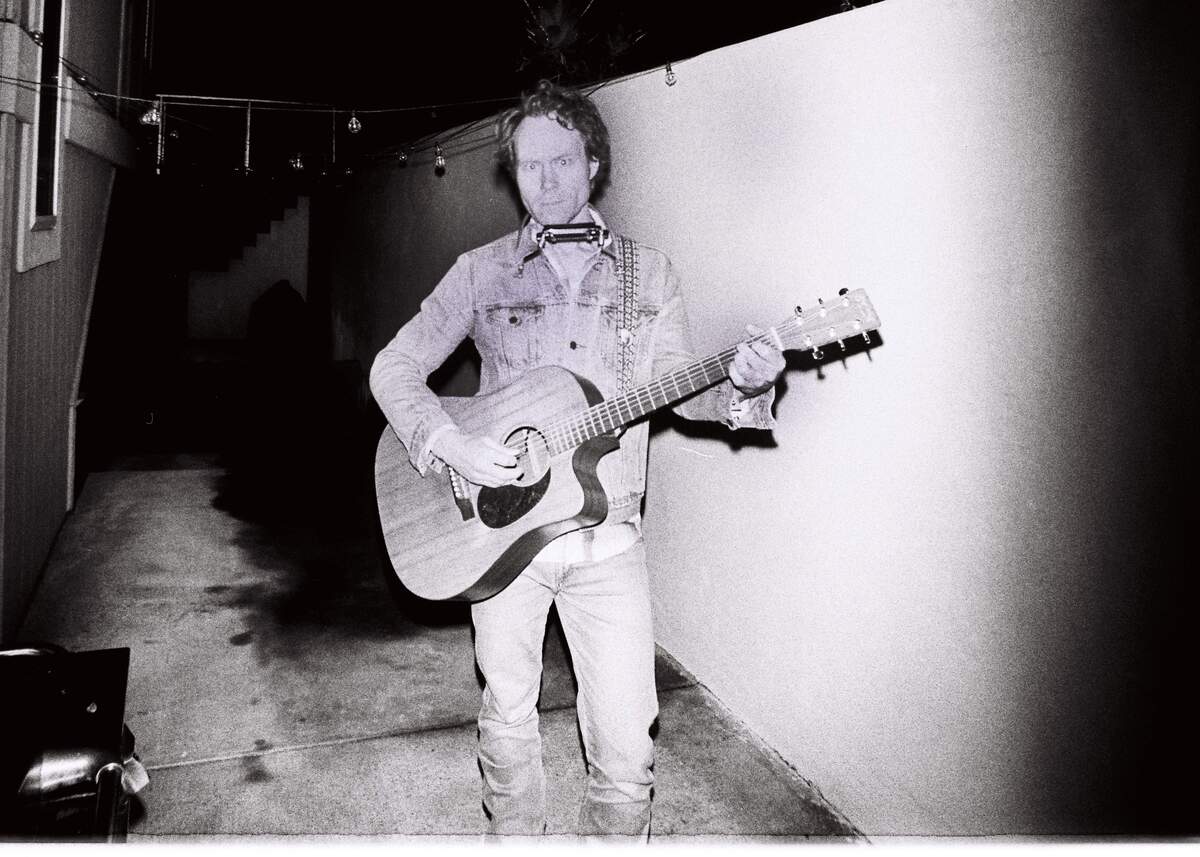
Your blog is amazingly detailed, here's a gift for you
http://www.youtube.com/watch?v=9jMA30_wUNM
Thanks for this, I've been waiting for Goliath to show up on the internet someday. Linda Rothwell was a worthy rival to Sonja Kristina, babe-wise. Also a great singer.
I really enjoyed reading your finished interview Sebastien..thankyou ,I enjoyed the interview.
Hey thanks for the compliment TJ..but I'm still alive..haha
Really enjoyed reading your interview.Maybe a reunion goliath gig at Ronnie Scotts could be an idea.